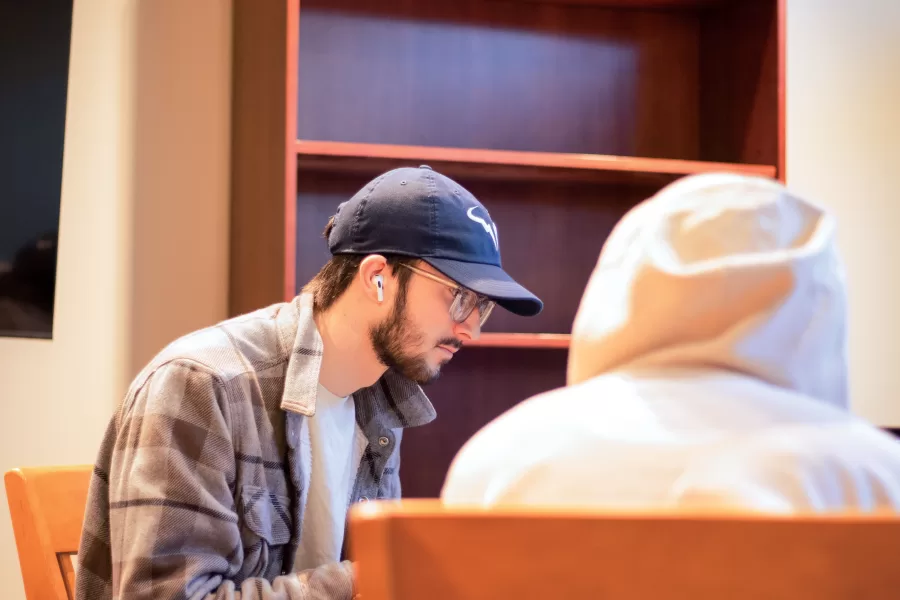Cultural center seeks director, plans opening event
Alec Loessy, freshman in Engineering, studies with some friends at the Salaam Cultural Center.
February 15, 2023
The Salaam Middle East North African Cultural Center has finally opened its doors in Urbana. After at least two years of working toward establishing a center for the Arab community on campus, the center had its soft opening in December.
The center is the second of its kind in the nation for this demographic on college campuses; the University of Illinois at Chicago had the first.
Currently, the center’s doors are open, but it is not holding any events, and no programs are in place. Once the center has its grand opening, however, it will be able to offer what other cultural centers have to their respective communities.
“Anyone can stop by and check it out, and it’s a casual place to study, hang out or meet people,” said Suaad Rashid, the MENA Student Coordinator for the Arab Student Association. “I think things will start to be more structured when there is a director who has a vision for the center.”
The cultural center is awaiting its grand opening until a director has been hired, but the hope is to hold the opening in early spring.
Get The Daily Illini in your inbox!
Arabs face discrimination and underrepresentation across America, and the University is no exception. Middle Eastern and North African students say they have felt underrepresented on campus.
“I thought that (the cultural center) is trying to represent a culture that’s kind of underrepresented,” said Hibah Lodhi, a student employee of the MENA center.
Domonic Cobb, the assistant vice chancellor for Student Success, Inclusion, and Belonging, oversees the cultural center. Cobb described the extent of underrepresentation historically for Arabic students at the University.
“I’ve been hearing about conversations here on campus for the desire for (an Arab Cultural Center) for over a decade,” Cobb said. “There have been people talking about this in the late 90s (and) the early 2000s.”
To many Arab students, this opening is an important, long-awaited milestone regarding their place on campus and their connection to the community.
“I think just being able to show that we’re here and we exist is very important,” Rashid said. “We’re actually here, we’re not just white, and we have our own differences.”







